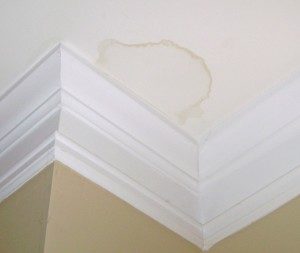Your House's Common Common Leak Factors: Analysis
Your House's Common Common Leak Factors: Analysis
Blog Article
We've noticed this great article pertaining to How to detect water leaks in your home down the page on the web and concluded it made perfect sense to talk about it with you on my blog.

Leaks not only trigger waste of water yet can also cause unnecessary damage to your house as well as advertise undesirable natural growth. By recognizing as well as looking for daily situations that trigger leakages, you can protect your house from future leaks and also unneeded damage.
Trespassing origins
Many water leakages begin outside the house instead than inside it. You might notice damp patches or sinkholes in your lawn, and that could imply that tree origins are attacking water lines creating water to seep out.
Rusty water supply
As time passes by, your plumbing system ages and corrosion such as corrosion might begin gnawing the pipes. This could be the cause of discoloration or bending on your pipes. This calls for an examination with your plumber right away. If our plumbing system is old, consider replacing the pipelines because they are at a higher risk of corrosion than the newer models.
Defective Pipeline Joints
The point at which your pipes connect is regularly the weakest link in the waterline. Pipe joints can degrade in time, leading to water leaks. The bulk of pipeline joints are not easily noticeable. If you have loud pipes that make ticking or banging sounds, especially when the hot water is activated, your pipeline joints are most likely under a lot of stress. It is suggested to have your plumber evaluate your system yearly.
Instant temperature adjustments.
Severe temperature changes in our pipes can create them to increase as well as contract suddenly. This expansion as well as tightening may cause splits in the pipes, particularly if the temperature level are listed below freezing.
Poor Water Connectors
At times, a leakage can be created by loosened pipes and pipelines that provide your appliances. In situation of a water links leak, you might discover water running straight from the supply line or pools around your devices.
Blocked Drains
Blocked drains pipes could be bothersome and inconveniencing, but they can occasionally end up causing an overflow bring about break pipes. Keep getting rid of any products that may drop your drains pipes that could block them to prevent such hassles.
All the above are causes of leakages but not all water leaks arise from plumbing leaks; some leaks may originate from roofing leakages. All leakages should be fixed instantly to stay clear of water damage.
Leakages not just create waste of water but can likewise trigger unneeded damage to your residence and advertise undesirable natural growth. By looking as well as understanding for daily circumstances that trigger leakages, you can safeguard your residence from future leaks and also unneeded damages. Today, we will look at six leakage causes that might be triggering your pipelines to trickle.
At times, a leak can be caused by loosened pipes as well as pipes that supply your appliances. In case of a water links leak, you may discover water running straight from the supply line or puddles around your devices.
How To Check For Water Leak In Your Home
How To Check for Leaks
The average household's leaks can account for nearly 10,000 gallons of water wasted every year and ten percent of homes have leaks that waste 90 gallons or more per day. Common types of leaks found in the home are worn toilet flappers, dripping faucets, and other leaking valves. These types of leaks are often easy to fix, requiring only a few tools and hardware that can pay for themselves in water savings. Fixing easily corrected household water leaks can save homeowners about 10 percent on their water bills.
To check for leaks in your home, you first need to determine whether you're wasting water and then identify the source of the leak. Here are some tips for finding leaks:
Take a look at your water usage during a colder month, such as January or February. If a family of four exceeds 12,000 gallons per month, there are serious leaks.
Check your water meter before and after a two-hour period when no water is being used. If the meter changes at all, you probably have a leak.
Identify toilet leaks by placing a drop of food coloring in the toilet tank. If any color shows up in the bowl after 10 minutes, you have a leak. (Be sure to flush immediately after the experiment to avoid staining the tank.)
Examine faucet gaskets and pipe fittings for any water on the outside of the pipe to check for surface leaks.
Undetected water leaks can happen without the home or business owner even realizing. If you suspect a water leak, but not able to find the source. It is time to contact a professional water leak detection service, The Leak Doctor.
How To Find a Water Leak In Your Home
https://www.leakdoctor.com/blog/How-To-Check-For-Water-Leak-In-Your-Home_AE197.html

Hopefully you enjoyed our part about Common Water Leaks In House. Thanks a lot for finding the time to read through our article post. Do you know about somebody who is in the market for the subject? Be sure share it. I value reading our article about How Fast Water Damage Can Ruin Your Home.
Call for expertise! Report this page